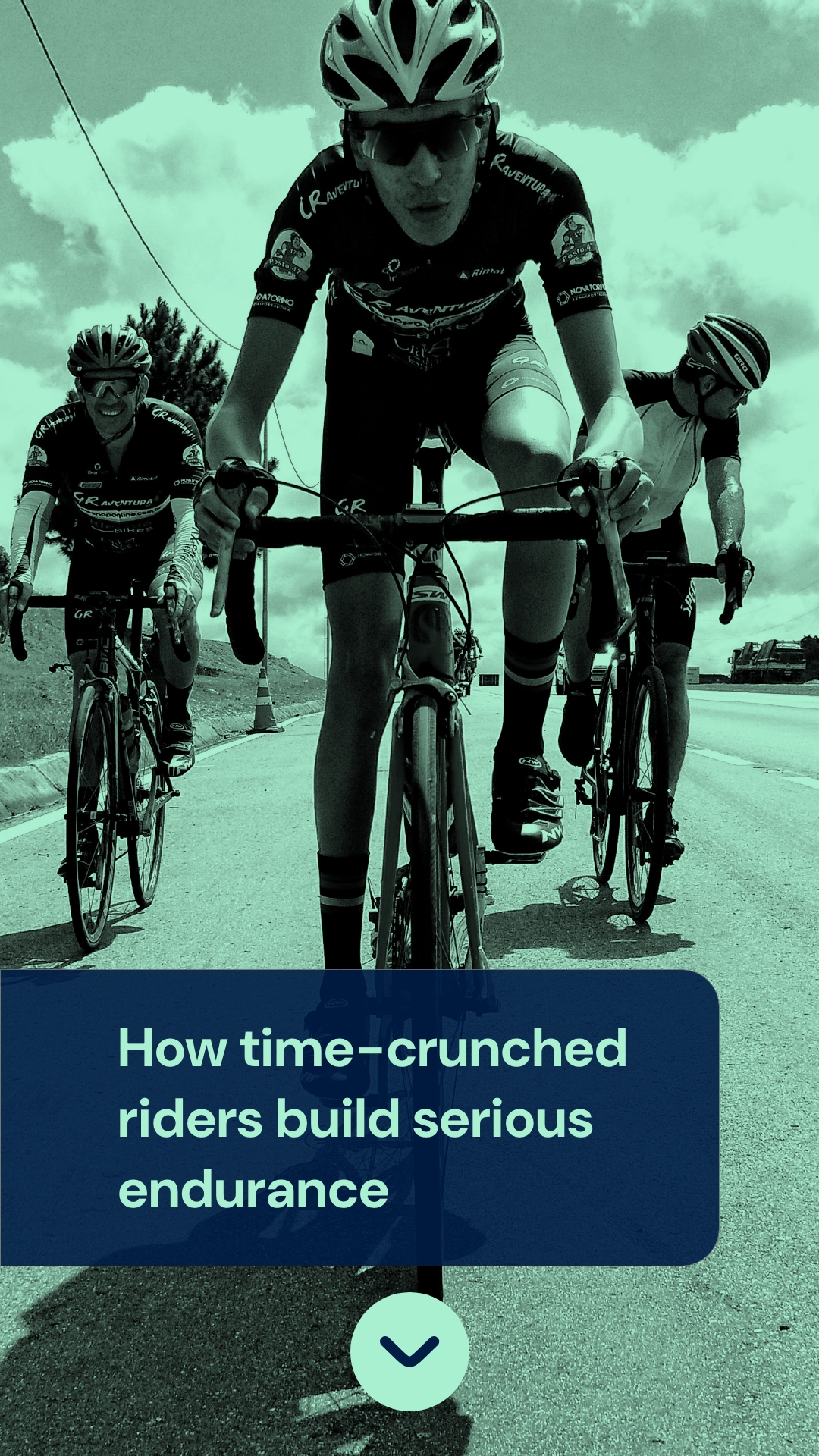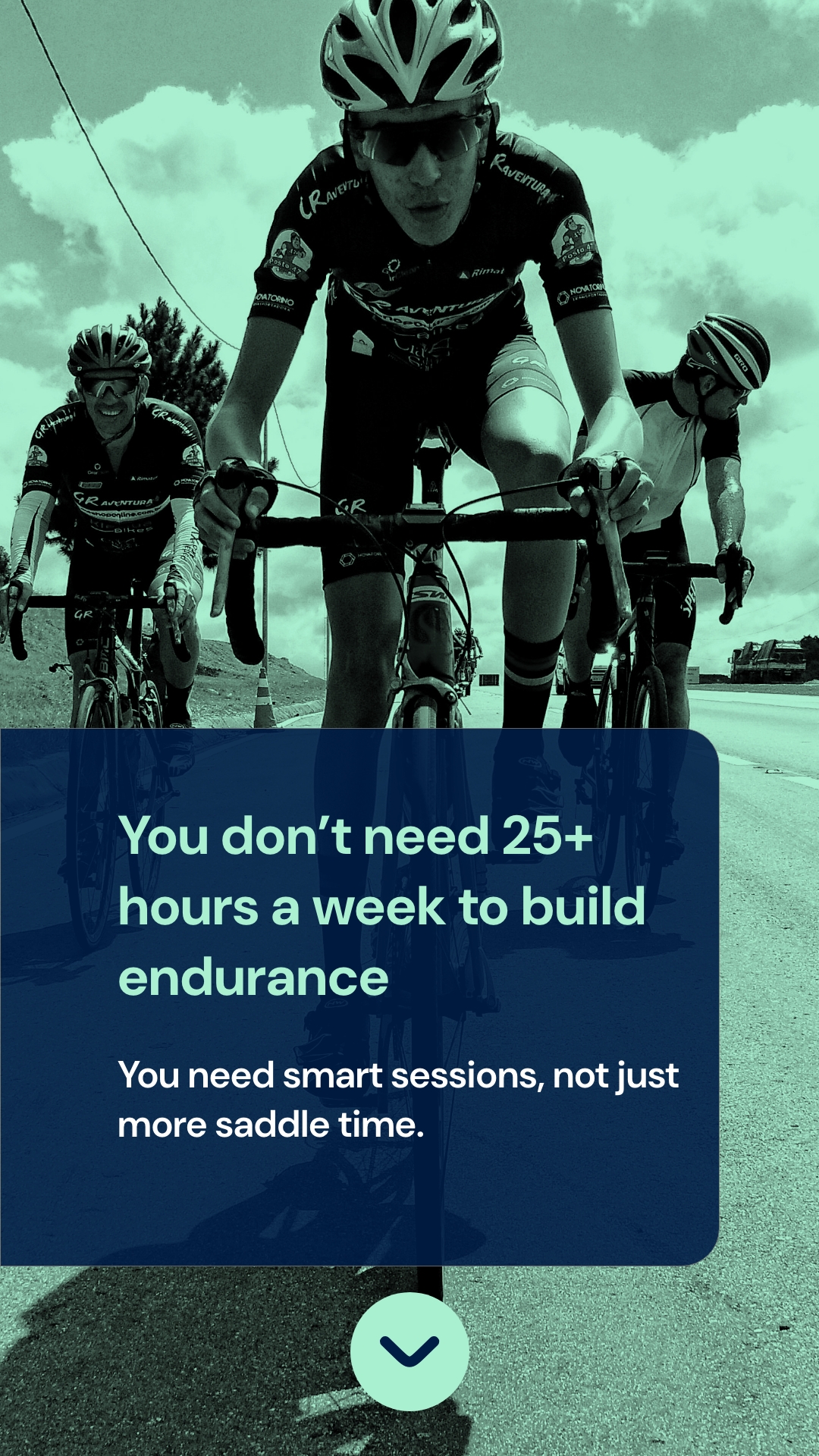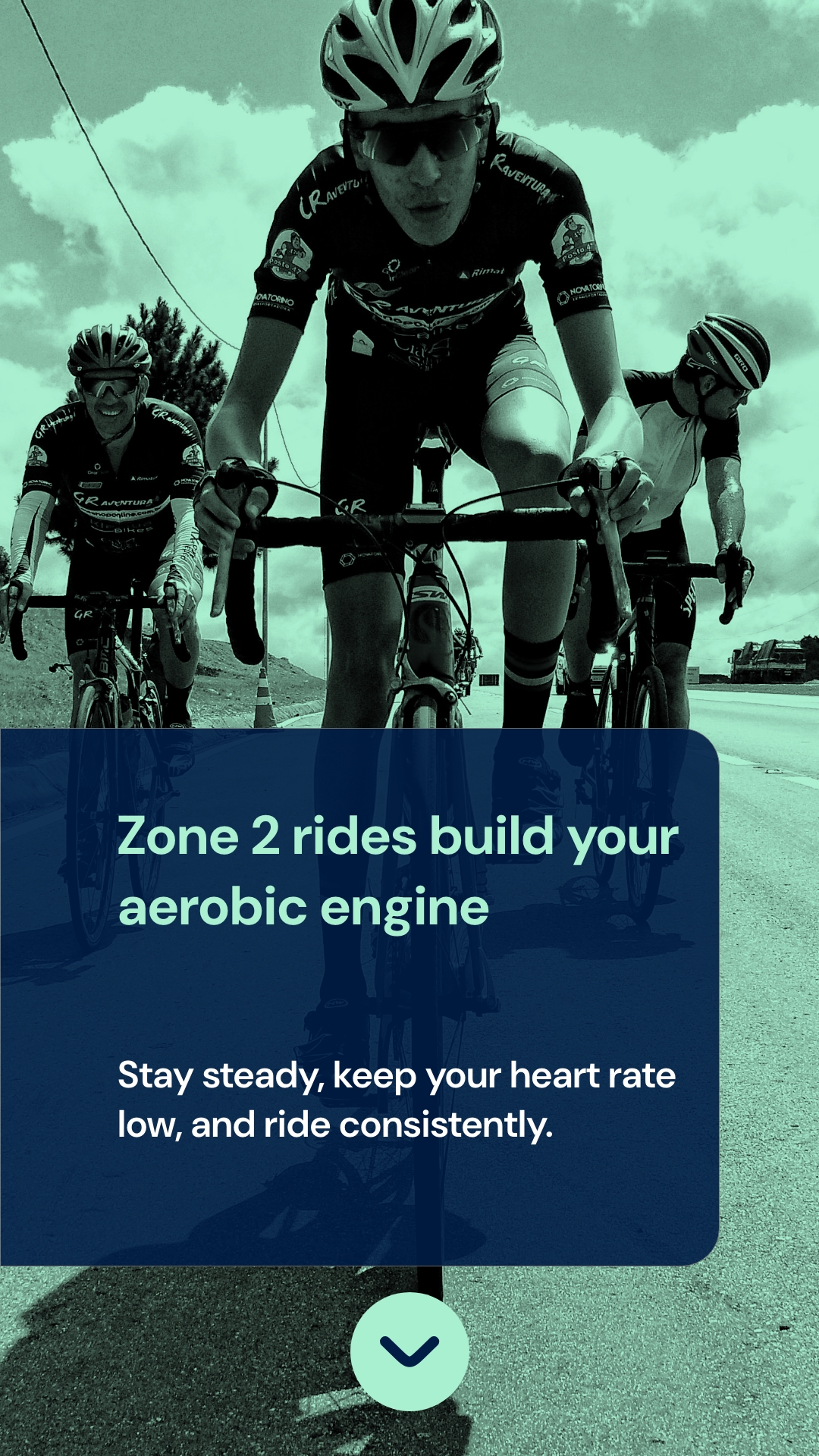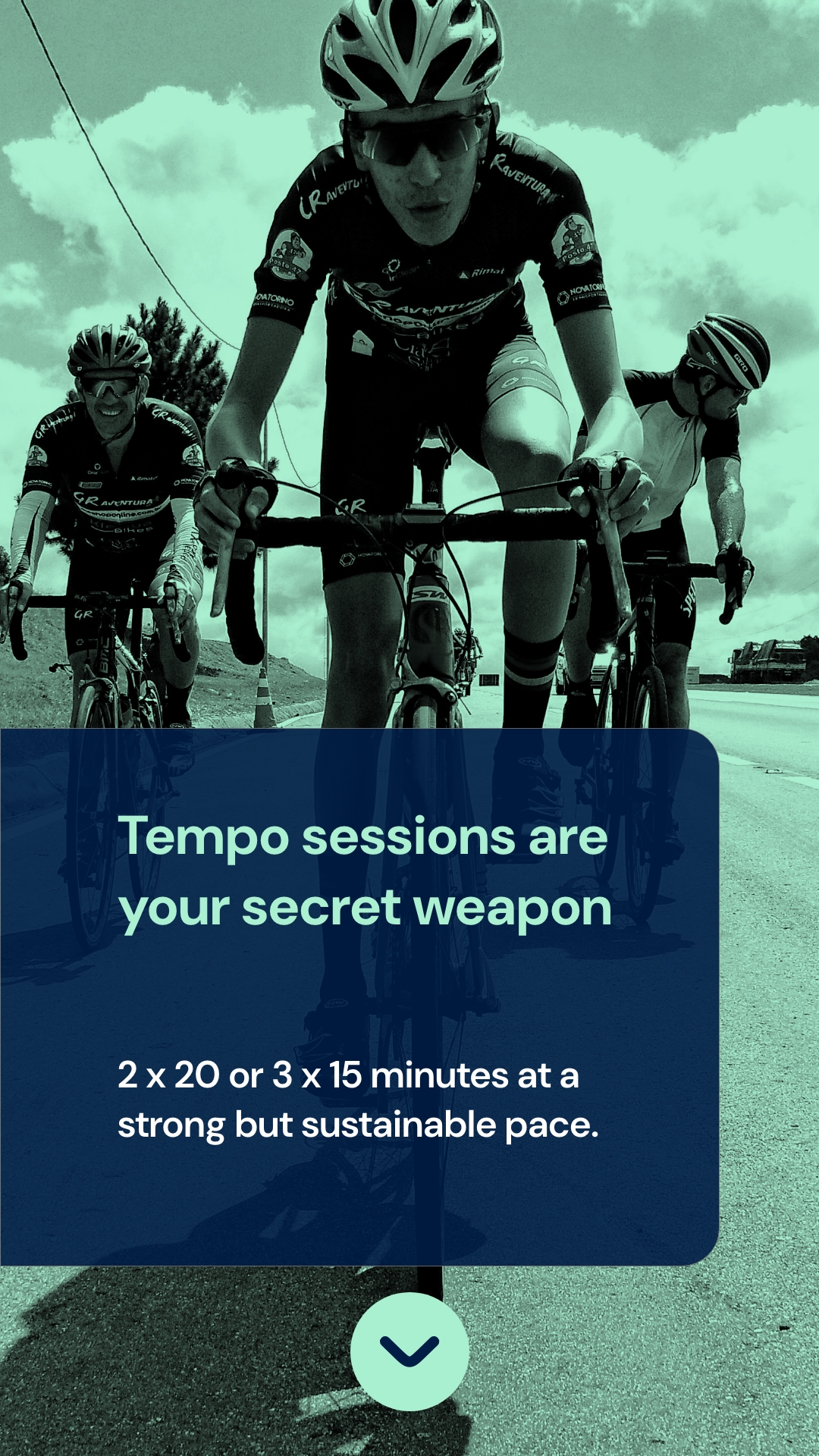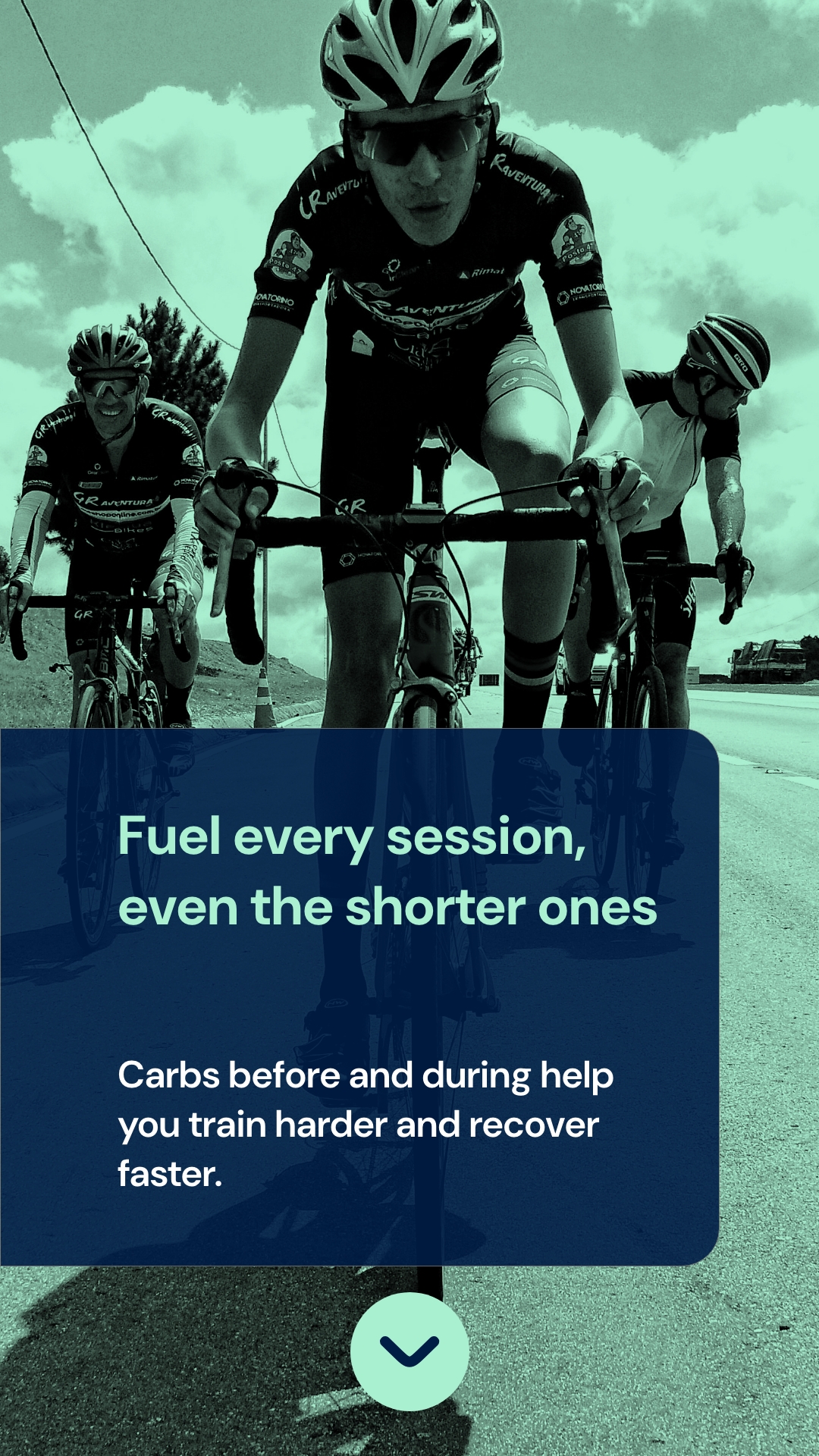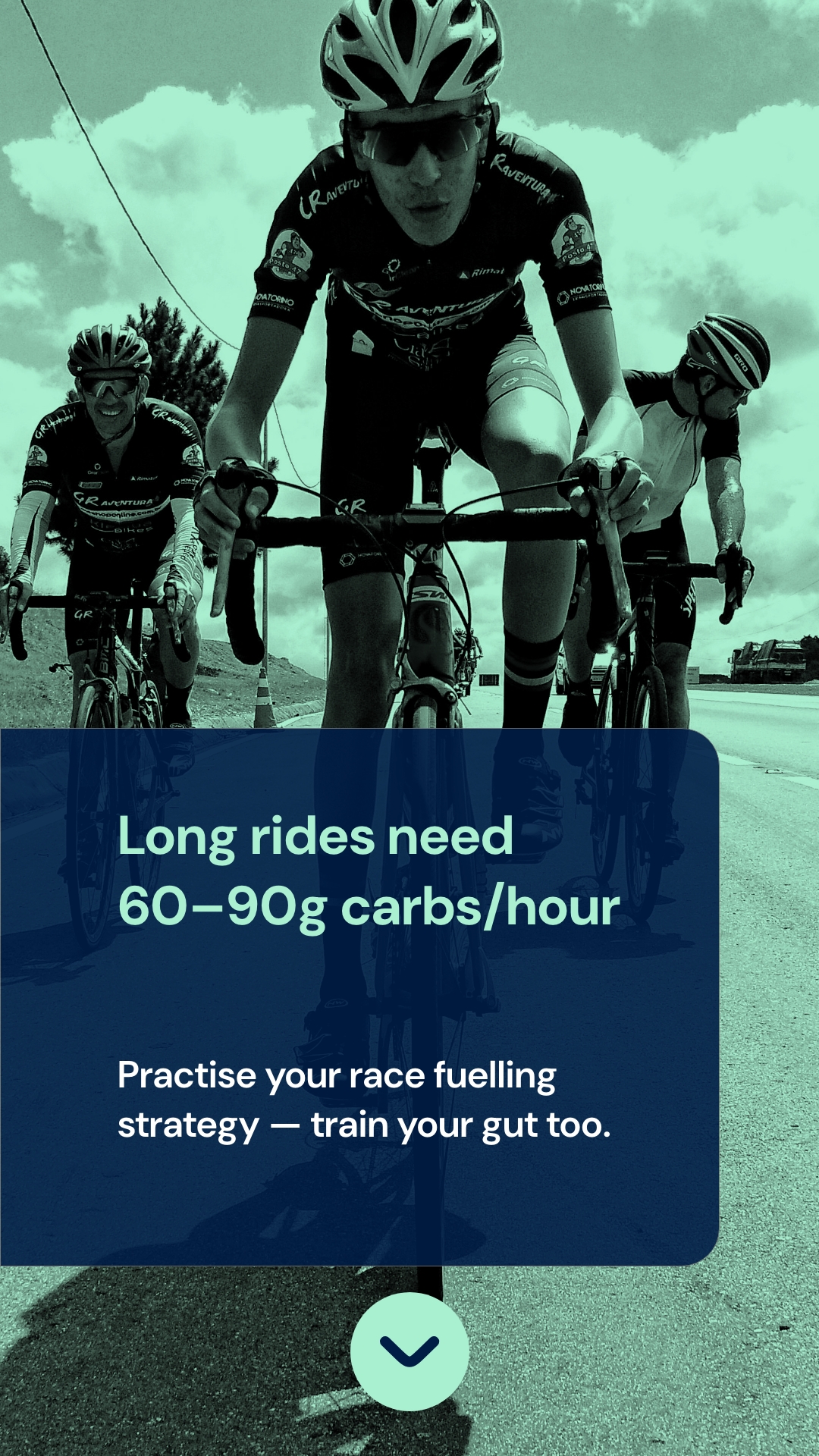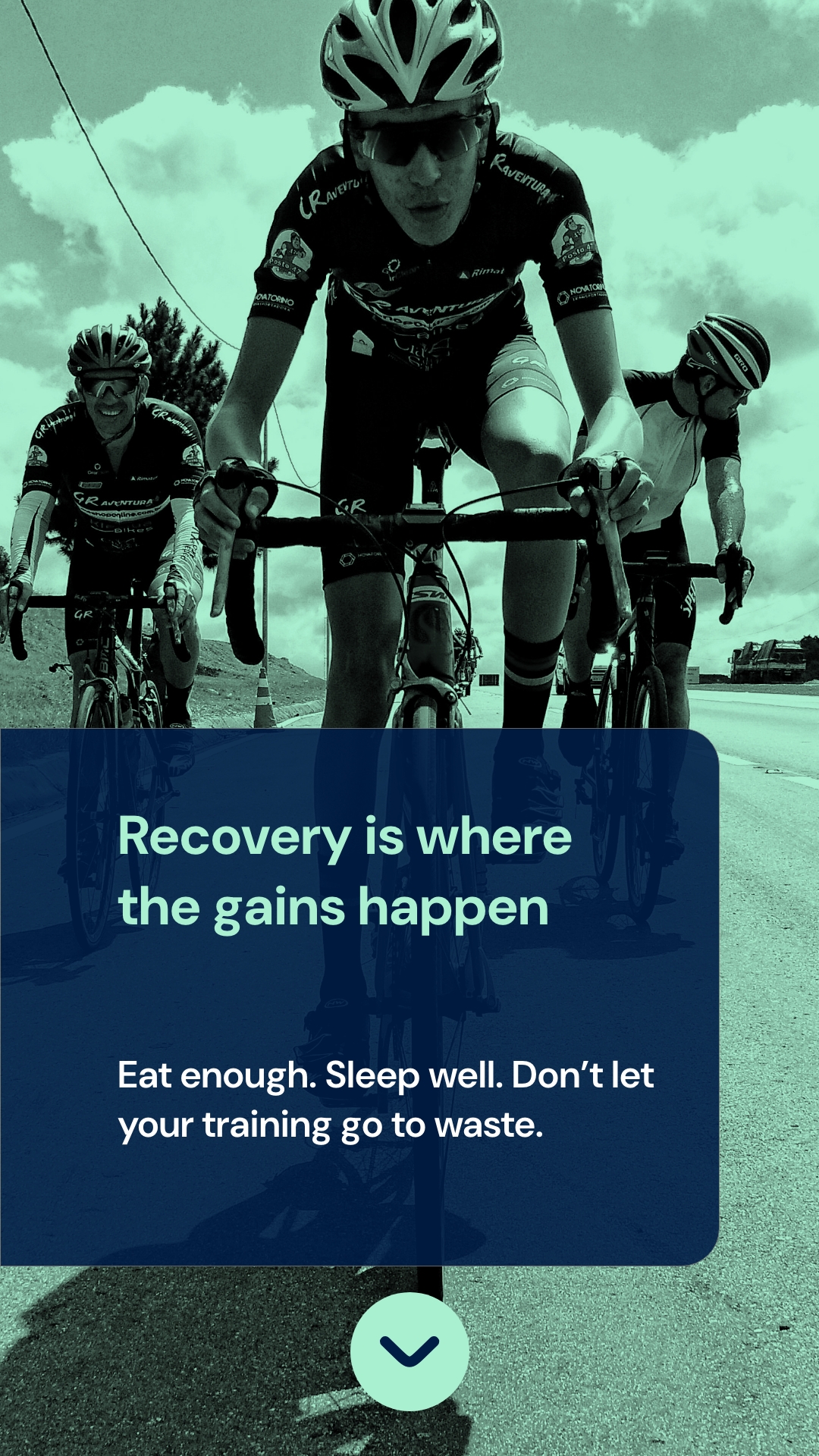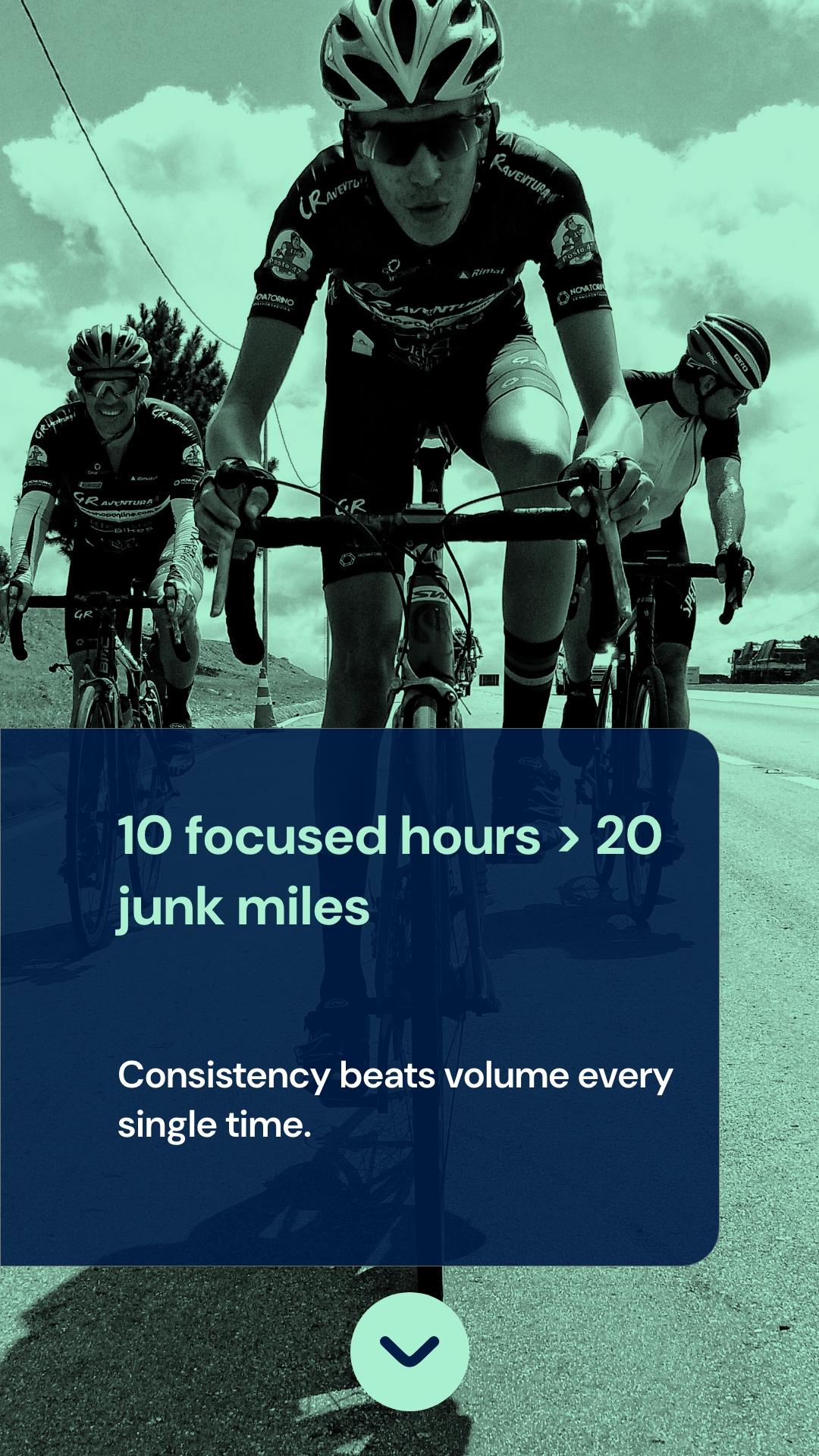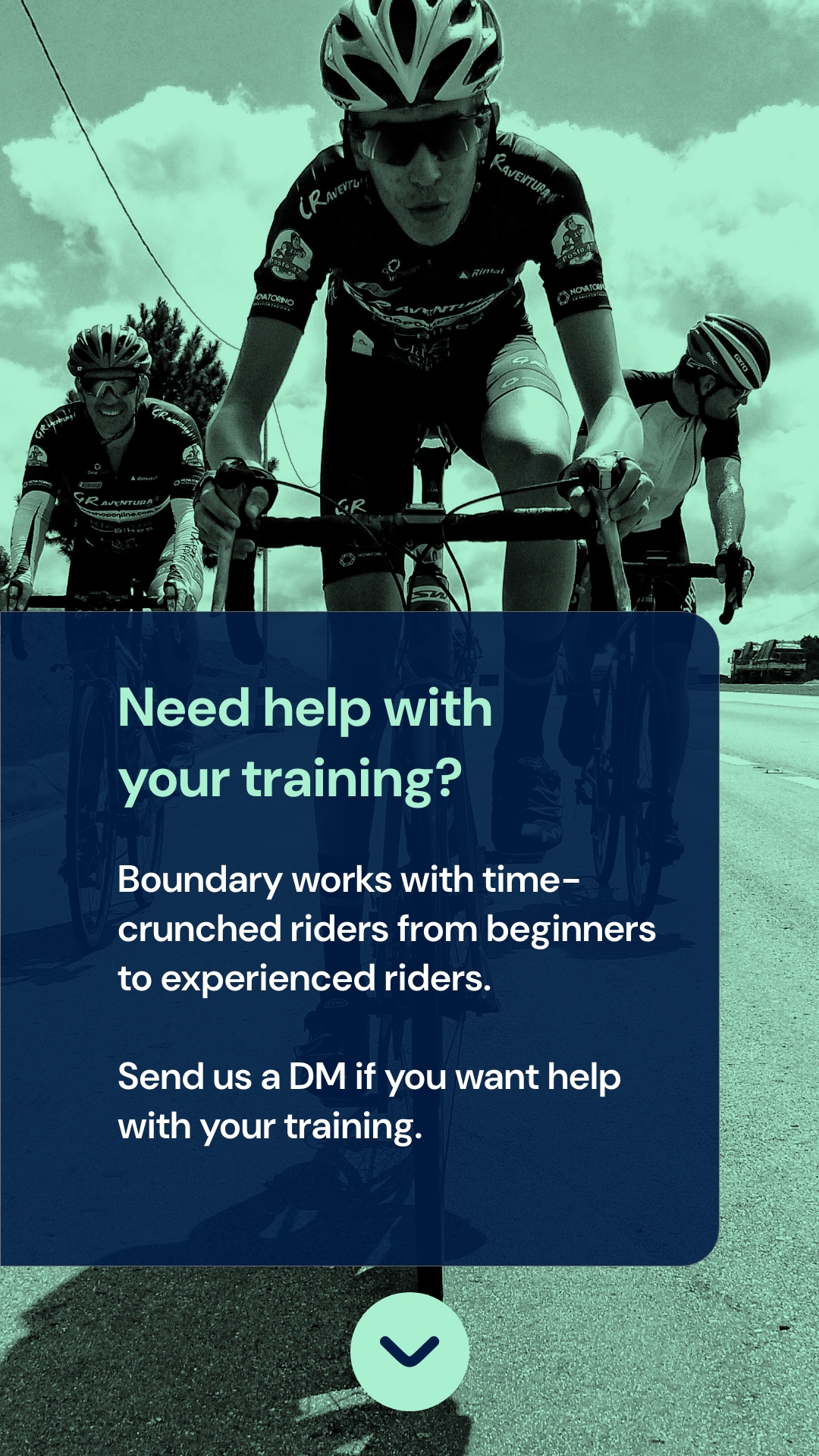Between work, family and everything else, time is tight. But here’s the good news, you don’t need a 25 hour training week to build rock solid endurance. You just need to train with purpose. And, crucially, you need to nail your nutrition.
Most rider don't have the luxury of time to do massive hours on the bike to train for ultra-distance events, however, the trick isn’t more hours. It’s better hours, and fuelling those hours properly.
Why endurance isn’t just about long rides
The goal with aerobic endurance is to build your ability to ride for hours without falling apart. That means improving your fat oxidation, sparing glycogen, regulating blood sugar, and making sure your muscles and brain stay switched on deep into a ride.
That doesn’t just happen through volume. You can get a lot of those adaptations through targeted training sessions that stress the aerobic system without needing to ride forever.
But here’s the catch: if you’re only training 8 to 12 hours a week, every session matters. And the only way to consistently get the most out of each ride is to support it with the right fuelling before, during and after.
A weekly training structure that works
Here’s a simple example of how a week might look for a time-crunched endurance rider:
- Two tempo sessions - These are your workhorse sessions. You might ride 2 x 20 minutes at low Zone 3, with 5 to 10 minutes recovery in between. Or 3 x 15 minutes. The effort feels steady and strong — you’re breathing harder but you could still hold a conversation in chunks.
Fuel tip: Start with carbs before the session (30 to 50g), and sip a carb drink or take a gel halfway through. The goal is to avoid a dip in output during the final effort.
- One to two steady Zone 2 rides - These might be 60 to 90 minutes midweek. The effort should feel easy, but don’t let your focus drift. This is true easy riding at conversational pace where you can chat freely without breathlessness. You’re training the aerobic system to be more efficient — that means keeping the power and heart rate in check.
Fuel tip: If it’s under 90 minutes and you’re well-fed, you can ride these without carbs. But doing them fasted is rarely a good idea if you’ve got more sessions coming. Think about the whole week, not just one ride.
- One longer ride (weekend) - This is your chance to go 3 to 5 hours if time allows. It should mostly be Zone 2, but you can include 2 x 20 minutes at tempo in the final hour to simulate riding under fatigue. If you're building towards multi-day ultra events, understanding energy management principles becomes even more critical with limited training time.
Fuel tip: Aim for 60 to 90g of carbs per hour. That’s more than most riders think. Use a mix of drink mix, gels and real food if needed. Practise what you’ll use in events — this is as much about gut training as it is leg training.
- Optional recovery spin - These short, low-intensity rides are mainly about keeping the legs moving and staying in the habit.
Fuel tip: Not essential here. Just make sure you’re well-fed going in and focus more on hydration.
These time-efficient principles are exactly what I use when coaching riders for major Alpine sportives like L'Etape du Tour. A 170km route with 5,400m of climbing over legendary cols like the Galibier and Alpe d'Huez demands serious endurance, but most riders preparing for L'Etape can't train 30 hours weekly. The systematic approach outlined above - quality over volume, strategic intensity, and smart recovery - builds the climbing endurance and multi-hour capacity needed for L'Etape without requiring unrealistic training volumes.
Nutrition makes or breaks your week
Training breaks you down. Nutrition is what builds you back up. If you’re training on limited time, your margin for error is even smaller — you have to recover properly between sessions. Follow science-backed recovery protocols for sleep, nutrition targets, and monitoring to maximize adaptation from limited volume.
That means:
- Daily energy intake needs to match training load - Don’t underfuel on rest days to chase weight loss. You need the calories to recover. Spread carbs across meals, not just around training.
- Protein every 3 to 4 hours - You’re aiming for 20 to 30g of high-quality protein per meal or snack. This supports muscle repair and keeps energy stable.
- Carbs are your fuel, not the enemy - Low-carb strategies have their place, but not if you’re trying to build endurance with limited training hours. You’ll just end up under-recovered and flat.
- Hydration isn’t just about water - Include electrolytes, especially after sweaty indoor sessions or longer rides. Even mild dehydration hits performance and slows recovery.
One final thought
If you’re training 10 hours a week, you’re already making a serious commitment. Don’t let poor fuelling waste that effort. I’ve seen it so many times — riders smash a tempo session then skip lunch. Or go long on Sunday then eat like it was a rest day. Over time, that catches up with you. You lose quality, you burn out, and eventually, you plateau. Training is just one part of the picture. Nutrition is the glue that holds it together.
Want help tailoring this to your riding? I coach riders who need to balance work, kids and everything else around their riding.
